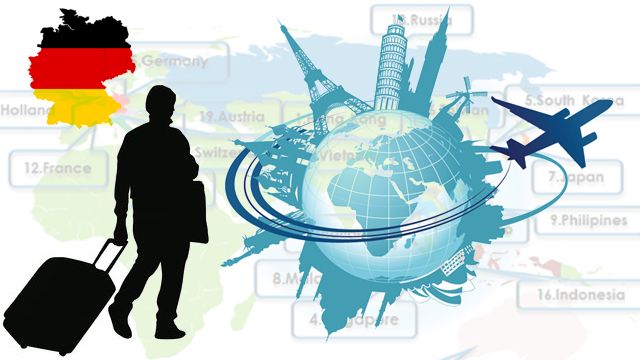The New Skilled Immigration Act in Germany
With the new law, existing mechanisms for skilled workers with a university degree, such as the EU Blue Card, will continue and in some cases be extended. In addition, a new opportunity card (Chancenkarte) will enable third-country nationals to seek employment.
The new law has several parts. The provisions will be phased in from November 2023.
The first stages of a new law that will make it easier for skilled workers from outside the EU to move to Germany are expected to come in November.
The German government gave its final approval for the law in July this year. It is expected to come into force in three steps in November 2023, March 2024 and June 2024.
The new law aims to attract skilled foreign workers and combat labour shortages in the country.
The plans to modernise the country's immigration legislation are expected to make it easier for third-country nationals to work in Germany. It could increase the number of non-EU workers in Germany by 60,000 per year.
The reforms to the Skilled Immigration Act particularly focus on workers with vocational, non-academic training. Existing rules for qualified professionals with university degrees will also be relaxed.
Why is Germany changing its immigration policies?
Like many countries in Europe, Germany is facing a shortage of skilled workers.
In 2022, the country's labour shortage rose to an all-time high: the Institute for Employment Research (IAB) found 1.74 million vacant positions throughout Germany.
In July last year, staff shortages affected almost half of all companies surveyed by Munich-based research institute IFO, forcing them to slow down their operations.
It hopes to fill this gap with qualified professionals from outside the EU. But currently, red tape is slowing down the country's immigration process.
During a press conference held at the Federal Office for Foreign Affairs (BfAA) on 17 January 2023, Federal Foreign Minister Annalena Baerbock said modernising the visa process would mean “turning it upside down”.
Together with Federal Chancellor Olaf Scholz, she emphasised removing bureaucracy and improving the digitisation and efficiency of the system.
What are the main changes to Germany's immigration policies?
- The new system will make it easier for people with professional experience - rather than a university degree - to come and work in Germany.
- Germany will become more open to job experience and professional qualifications that are recognised in workers' native countries. Currently, the country is strict about which qualifications it recognises.
- It will be easier for those without a job offer to seek work in Germany via the opportunity card.
- Qualified job seekers with degrees or vocational certificates will be allowed to stay in the country for one year as they search for employment. While looking for full-time employment, they will be permitted to work up to 20 hours per week.
- Rules will also be eased for those with a job offer and a recognised diploma. Salary thresholds will be lowered, it will be easier for workers to bring their families to Germany, and it will be easier to gain permanent residency.
